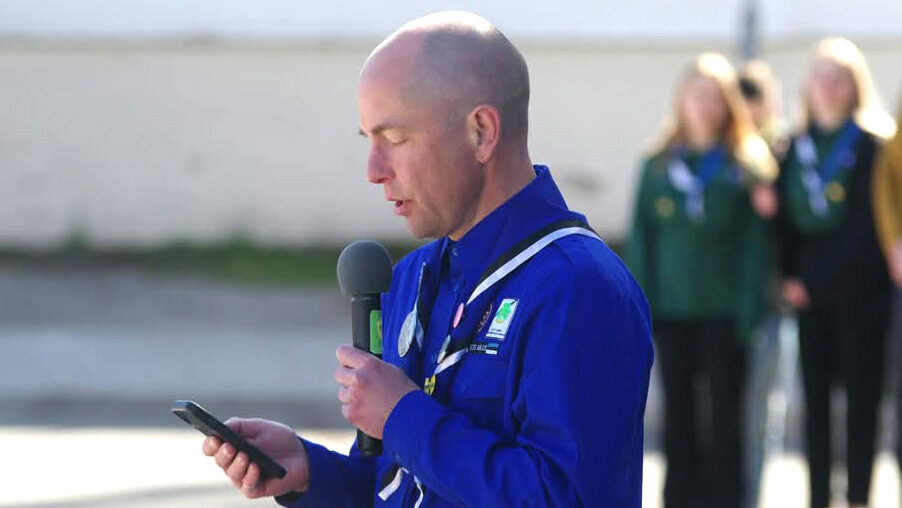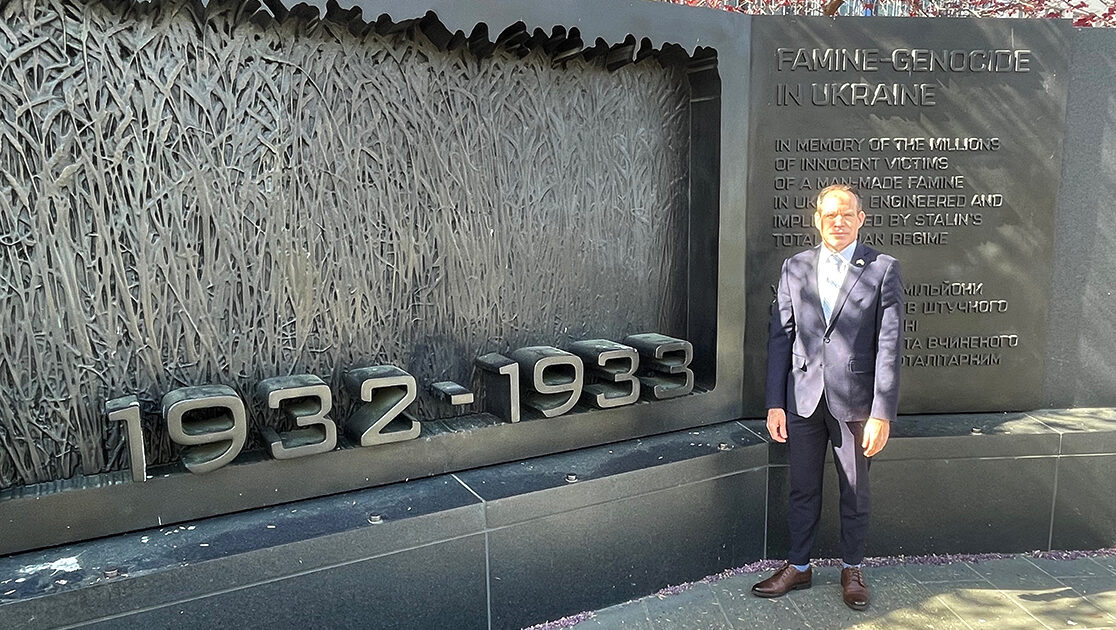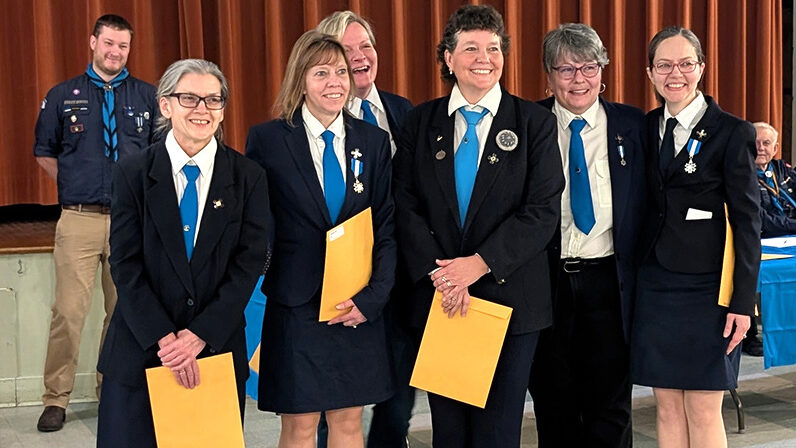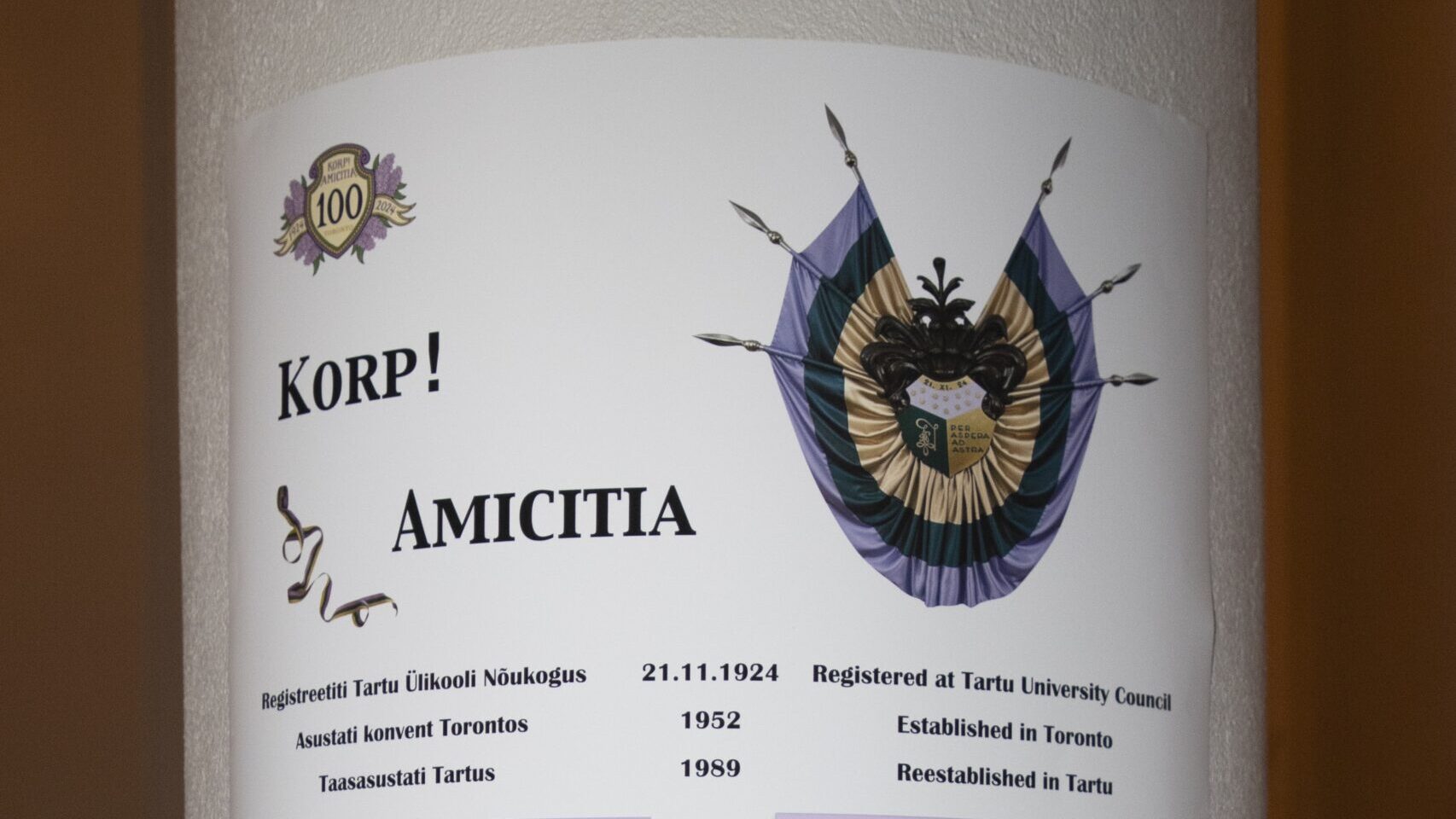One of Bradford's nicknames is “Wool City”, due to its heritage as the international focal point of wool production and textile manufacturing during the Industrial Revolution.
Bradford has quite a lineup of ornate Victorian buildings and also what is claimed to be the largest former industrial building in the world—Salts Mill. Salts Mill currently houses a shopping centre and a collection of paintings by Bradford-born painter David Hockney. You may also recognize this area as the home of the Brontë sisters—Charlotte, Emily, and Anne—who wrote their famous novels while living at the parsonage in Haworth, outside of Bradford.
Yet, you may not known that on a quiet side street, at 8 Clifton Villas, is the Bradford Eesti Kodu (Bradford Estonian Club), founded in 1956. Reet Järvik, Chairperson of Klubi Eesti Kodu Bradford, kindly shed some light on this corner of the global Estonian community:
How did it come about that Bradford was a significant place for Estonians to settle in England?
Estonians from the Displaced Persons Camps in Germany were recruited to work in the UK via the EVW (European Voluntary Workers) scheme and most of them (including my parents!) arrived in the UK in 1947 or 1948 to work in hospitals, agriculture, or mining for a fixed term. Upon completion of these fixed terms, many Estonians settled and made their homes in Bradford and neighbouring Leeds, as there was plenty of work available in textile factories and warehouses.
What purpose did the current building serve before it was Eesti Kodu?
The grand old Victorian building (Clifton Hall) and other buildings on Clifton Villas originally belonged to wealthy textile mill owners. Many of these wealthy mill owners settled in the affluent, much sought-after suburb of Manningham, which was then on the outskirts of Bradford. It is now no longer an area of affluence and wealth and is considered to be part of central Bradford, but the club house retains some of the grandeur of former times and is set in a beautiful large and secluded garden, hidden away from the busy main road.

There's a bar inside Eesti Kodu. Do local non-Estonians enjoy going to the bar or taking part in cultural activities on offer?
There is indeed a thriving bar inside the Eesti Kodu which is used by Estonians and non-Estonians alike. It is run by our friendly bar manager, Paul Ratnik, whose father was Estonian. We serve Saku and A le Coq beers, Viru Valge vodka, Estonian ciders such as Kiss, and a whole range of local beverages. The club is situated close to Bradford City Football ground and on match days, the club is filled with English football supporters, who come to the club for pre and post match drinks. Many come especially for the Estonian beer and their favourite is Saku Originaal! [Due to recent regulations],
We do not know when we will be able to welcome fans to the club again. In the absence of events and a ban on households mixing indoors, we are just managing to survive thanks to the support of our loyal members and government COVID-19 aid.
What is the Eesti Kool program like for children?
Education is about the only sphere of activity that has been allowed to recommence under COVID-19 restrictions, so the Põhja-Inglismaa Eesti Kool recommenced school sessions in September. They meet monthly on Sundays. Lessons include Estonian language, Estonian singing, plus art and crafts. This school was started in 2013 but the Bradfordi Eesti Täienduskool (which I myself attended for 11 years) started way back in the 1950s and closed its doors in the mid 1970s.
Bradford Estonians are known for their festive Jaanipäev party. What is the general atmosphere like?
As we have a large garden, we host the best Jaanipidu in the north of England, complete with a Jaanituli, food, stalls, dancing, and live music. Several hundred Estonians and their friends, and also Latvians from the neighbouring Latvian club (who do not have the advantage of our large garden) attend each year. The party goes on until the early hours and live musicians from Estonia who have performed at our Jaanituli in recent years include: Untsakad (twice), Tuulelõõtsutajad, Marko Matvere ja Väikeste Lõõtspillide Ühing, Vanaviisi, and Meelis Punder. Unfortunately this year’s event had to be cancelled, but we hope to be back in 2021 bigger and better than ever!
The other main events in our calendar are Vabariigi aastapäev in February (attended in Bradford by president Lennart Meri and his wife in 1998), Emadepäev in May and Jõulupidu in December. Vabariigi aastapäev was our last official event before the pandemic.
What is the broader mission of Bradford Eesti Kodu?
Our mission is to promote and further Estonian language and culture in the North of England and beyond. We welcome all Estonians and their friends from near and far to join in the cultural and social activities of the club. We want to act as a “second home” (as this club has been to me for all of my life!) to all Estonians and their friends in the North of England.
Please come and visit us! To all Eesti Elu readers, we would be delighted to see you and you are guaranteed a very warm welcome!
This interview has been edited and condensed.
This article was written by Vincent Teetsov as part of the Local Journalism Initiative.




